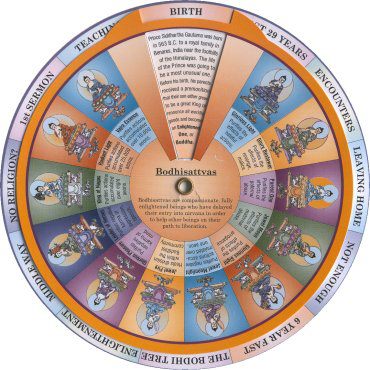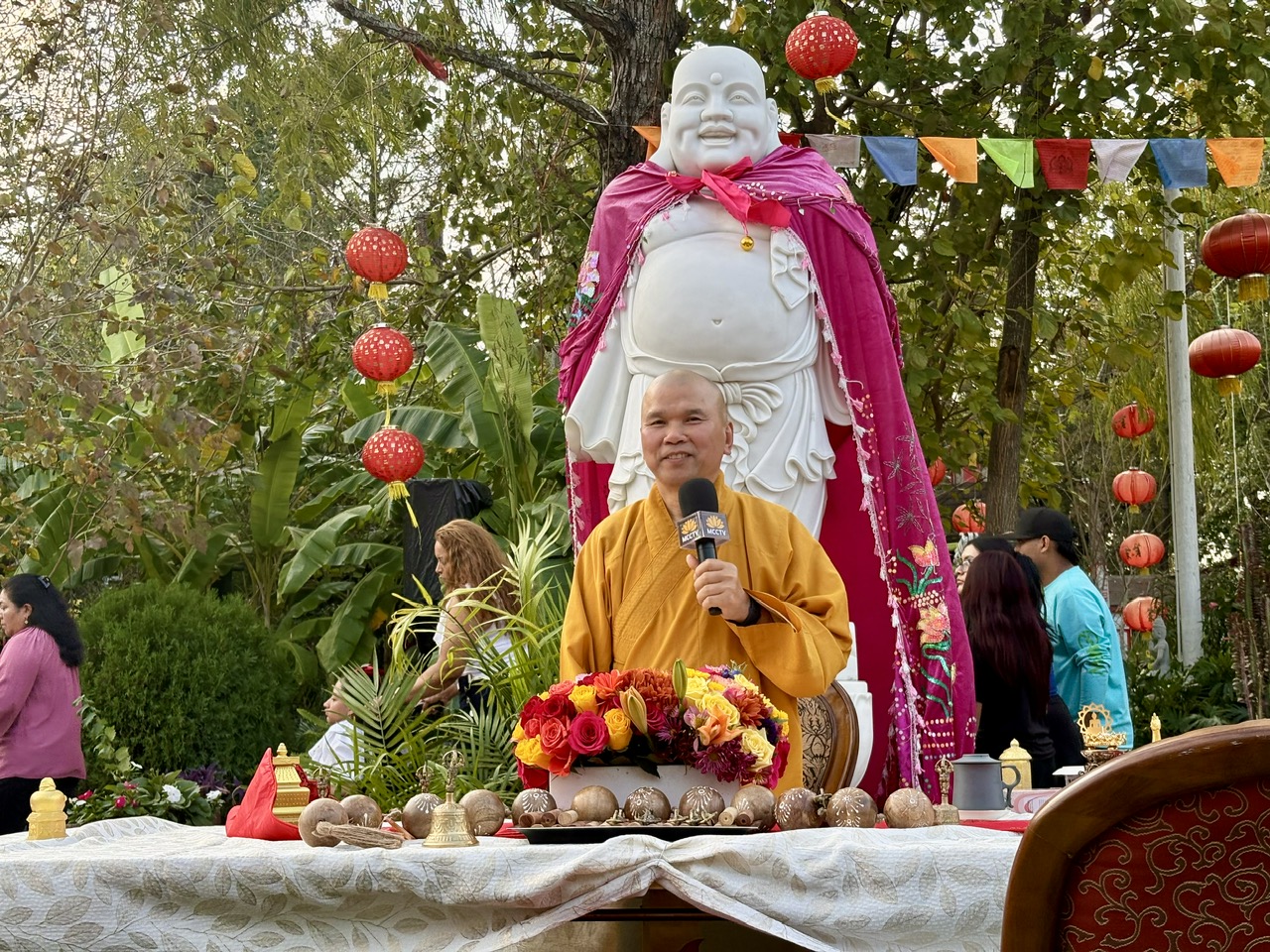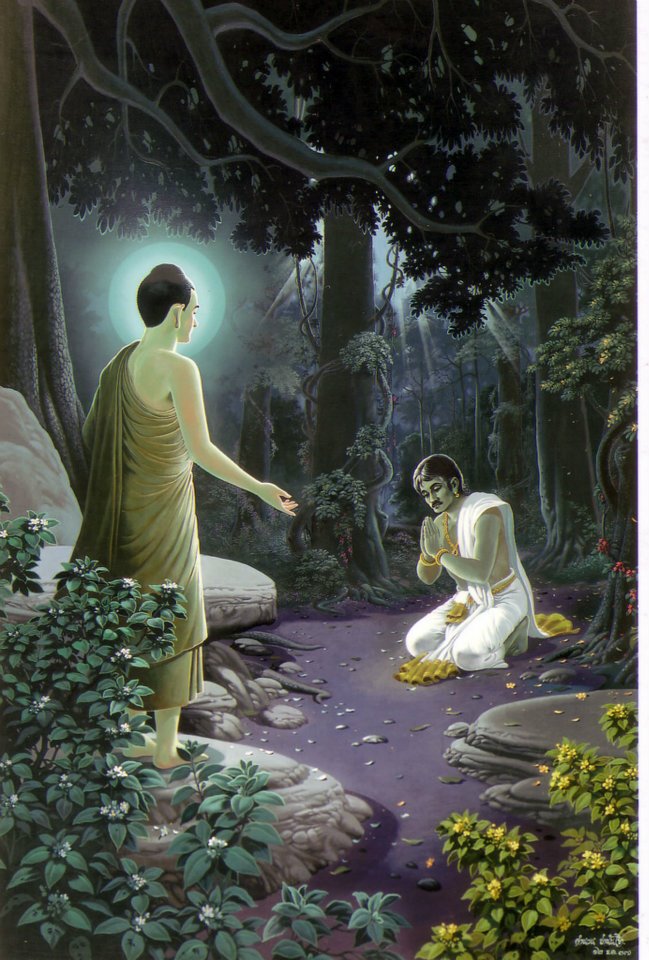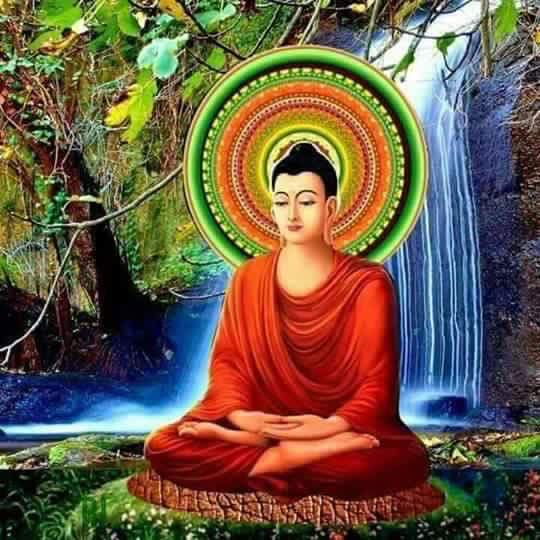Dharma Master Andrew. J. Williams

INTERDEPENDENT ORIGINATION
◆●════◆◇◆ ════ ●◆●
“In its most complete formulation, Interdependent Origination is expressed in English as:
– ‘Dependent on ignorance are karmic formations; dependent on karmic formations is consciousness; dependent on consciousness are name and form (mentality and physicality); dependent on name and form are the six sense-bases; dependent on the six sense bases is contact; dependent on contact is feeling; dependent on feeling is desire; dependent on desire is clinging; dependent on clinging is becoming; dependent on becoming is birth; dependent on birth is old age, sickness, death, sorrow, grief, lamentation, pain, despair and a whole great mass of suffering.’
This deals with the arising of dukkha (suffering).
The cessation of dukkha (suffering) is then addressed:
– ‘With the ceasing of this ignorance, karmic formations cease; with the ceasing of karmic formations, consciousness ceases; with the ceasing of consciousness, name and form cease; with the ceasing of name and form, the six sense-bases cease; with the ceasing of the six sense-bases, contact ceases; with the ceasing of contact, feeling ceases; with the ceasing of feeling, desire ceases; with the ceasing of desire, clinging ceases; with the ceasing of clinging, becoming ceases; with the ceasing of becoming, birth ceases; with the ceasing of birth, old age, sickness, death, sorrow, grief, lamentation, pain, despair and a whole great mass of suffering come to cease.’
Therefore, with the ceasing of this ignorance all suffering ceases.
There are many forms of dependence mentioned in this analysis. It may be helpful to remember that dependent on or conditions, does not necessarily mean creates. For instance, we could say that walking is dependent on having legs, or catching an aeroplane is dependent on getting to the airport on time, or your ability to see something is dependent on your eyes and the lack of obstacles blocking the way, and so on and so forth. Understanding this, the practitioner begins to realise that just as arising dependence, need not mean creation, the cessation, so valued by the Buddha, need not mean annihilation or extinction. In this lifetime, where enlightenment can be realised, name and form (mentality and physicality) can cease. That is, the identification with physical and mental karmic formations can cease so that life is no longer lived from the pleasure/pain fame/shame praise/blame or gain/loss principles dictated by the senses.
In this way, one could understand the sequence in a more simpler and fluid way, for example: To the extent to which the mind has not comprehended the truth, habitual drives and tendencies manifest and condition awareness into a discriminative mode of consciousness that operates in terms of subject and object (mentality and physicality) held to exist on either side of the six sense-doors. These sense-doors open dependent on contact that can arouse varying degrees of sensation or feeling. Feeling stimulates desire, and according to the power of desire, attention lingers and clings, and so personal aims and obsessions develop to give rise to self-consciousness. That self-consciousness, once arisen must follow the cycle of maturing and passing away, resulting in a sense of suffering and sadness, that varies from sorrow, to grief and depression, to anguish and emotional breakdown.
But when the mind looks into the sense of loss and comprehends the truth, habitual drives and tendencies cease, and the awareness is no longer bound by a discriminative mode of consciousness, so that the separation of the subject and object (mentality and physicality) is no longer held, and one does not feel trapped by or pulled out through the six sense-doors. The sense-doors open for reflection, rather than being dependent on contact, and therefore impingement does not impress itself into the mind. So there is freedom from desire and attention does not linger and get stuck, and grow into selfish motivations that centre around and reinforce the ego or self-centredness. When no personal self-image is created, it can never bloat up or reinforce itself, nor can it be destroyed. So there is nothing to lose, a sense of gladness, uplifting joy and serenity.”
◆●════◆◇◆ ════ ●◆●
~Dharma Master Andrew. J. Williams~






















